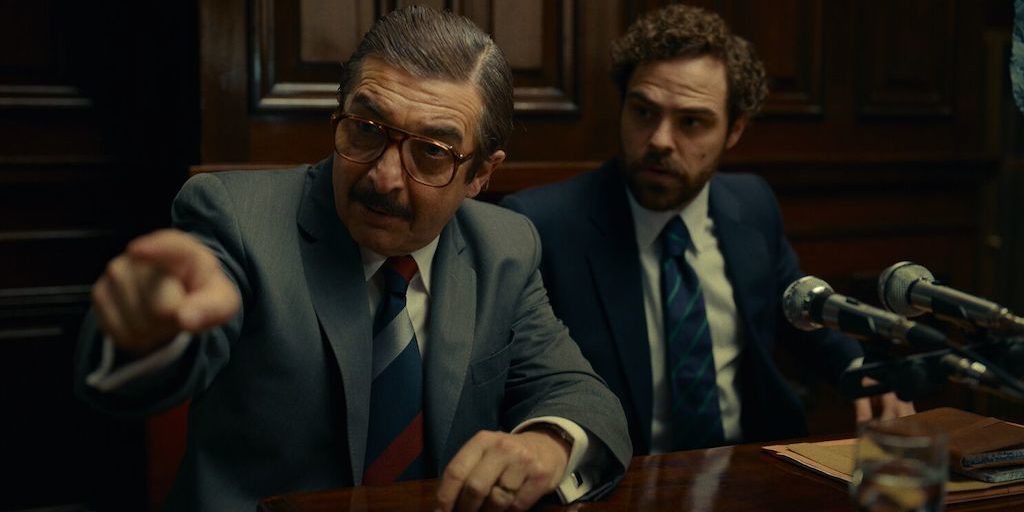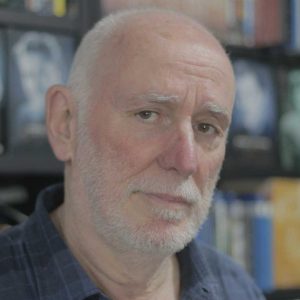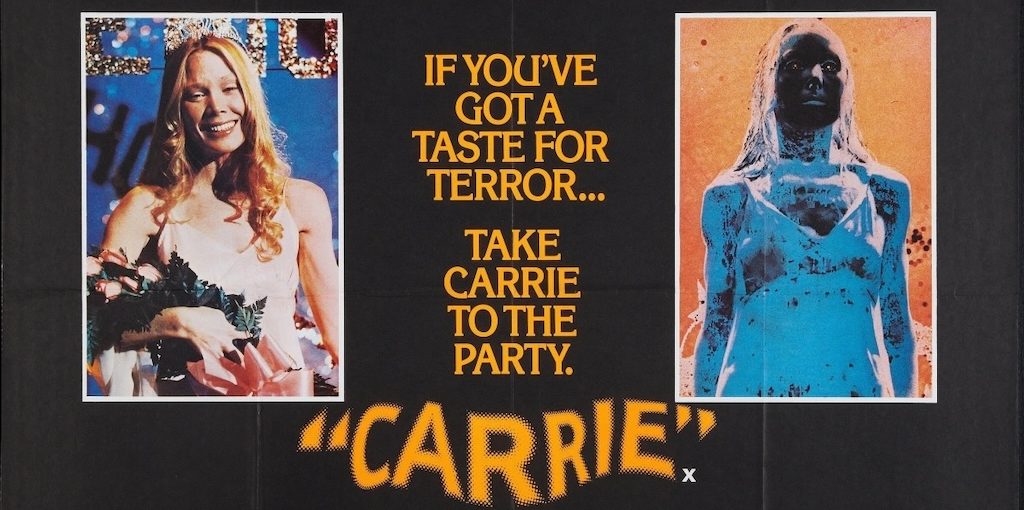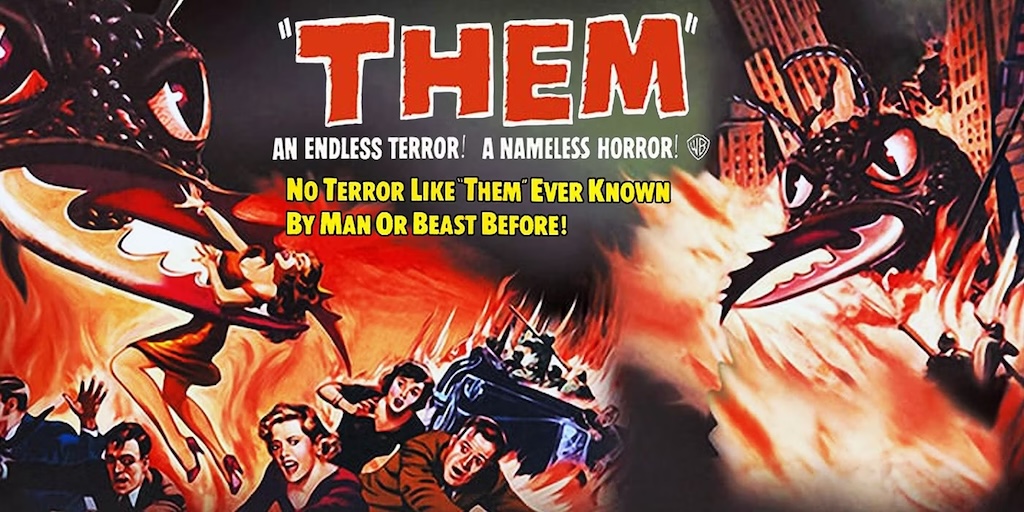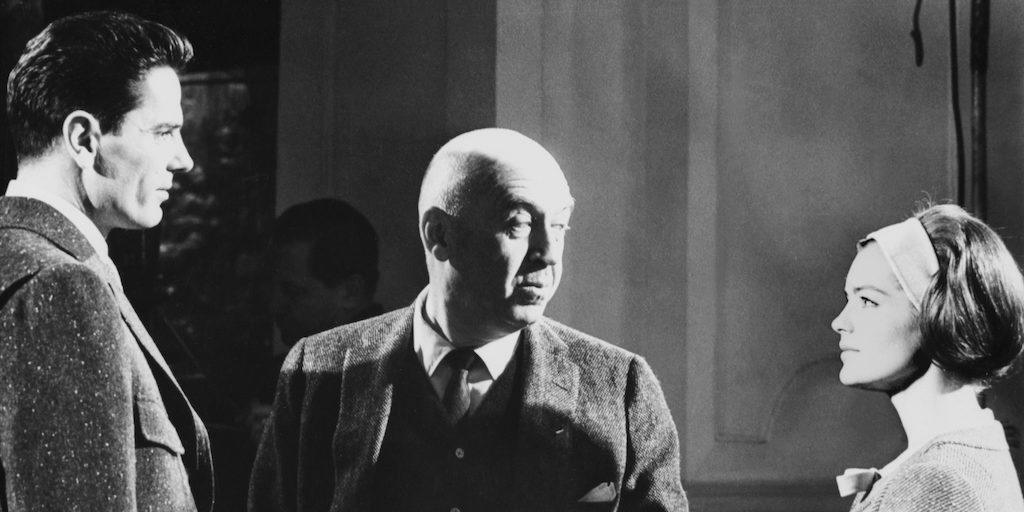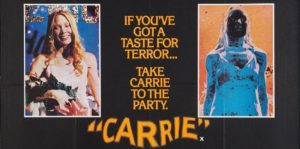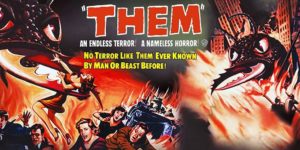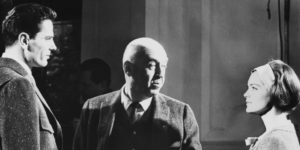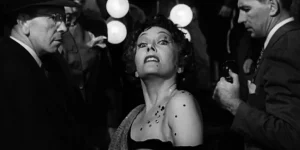WHAT ALFONSÍN KNEW
Given everything that was already written and said about Argentina, 1985, what I have to add is irrelevant. Anyhow, I will try to avoid two commonplaces. One is the debate about whether the movie brushes aside the figure of Alfonsín, something that seems to keep many people concerned. Anyway, I would like to say something about it after reading Raúl Alfonsín by Pablo Gerchunoff, a book that was recently published. The reading led me to the conclusion that the then President was the decisive player in putting the Military Junta Commanders on trial, something that maybe the movie suggests but never clearly affirms. He was advised by lawyers, such as Carlos Nino and Jaime Malamud Goti, who came up with the way of annulling the Military Junta self-amnesty. The CONADEP’s research and the publication of the Nunca más were also important to get to the trial and disclose the atrocities committed by the Military Dictatorship. It is discussed if the film mentions them by name, but it does not matter if there is at least one line of dialogue that mentions them. In fact, they leave them aside.
And he has every right to do so. It is so absurd to pretend a filmmaker has obligations to his subject matter, like supposing the film is “necessary” (and this may evolve into “obligatory”). It is absurd and, nonetheless, there is still those who want to saddle both audiences and filmmakers with duties. After all, also, Argentina, 1985 is a film “based on real events”, a film genre whose characteristic is to support itself in past historic events to build a fiction from them. This fiction can have a higher or lesser connection to those facts, but it is safe of being questioned regarding the veracity or accuracy of what it is telling. Let us say that, based on that very premise, someone could make a movie titled “Donald Duck and Mickey Mouse put the Military Junta on trial” and introduce the famous cartoon characters in a plot where characters appear that are named like some historical figures (Videla, Alfonsín or Bonafini, for instance) and have them interact. We could even have Huey, Louie and Dewey help them in the investigation. My impression is that Argentina, 1985 looks a little like this supposed movie. But, perhaps, is fine that it is so.
Argentina, 1985 tells the way in which an attorney and his assistant manage to indict the members of the Military Junta and how the judges ended up sentencing some of them for life. Those characters are named Julio Strassera and Luis Moreno Ocampo, the same way as their historical counterparts, but they are not them: they are constructed as part of a fiction, in the same way the commanders are constructed. Except these are portrayed by actors who bear some physical resemblance to the originals and caricaturize them in some way; they barely open their mouths (Besides, Videla reads the Bible during the trial and perhaps he might have, but it does not matter and resembles too much a reference with little value). The attorney and his assistant, on the other hand, are object to a dramatic development on which the plot is based. The film does not deprive itself of making Strassera a chain smoker, as to add character to him and steal a little to reality even after the story declares itself as fiction. (In here, the English School, that of Ben Kingsley portraying Gandhi, makes its apparition, memorably imitated by Mario Sapag, who also portrayed Alfonsín at one time) After all, that is the advantage of a film based on true events: it allows to use reality when it serves to their purposes and ignores it when it is convenient. Those are the rules.
The film links their scenes coming from a chronology of the trial seen from the perspective of its two protagonists, who not only perform their tasks as public servants, but interact between each other, with their families and with other characters. Some of them are purely made up (like the dull Dr. Bruzzo, an emissary of some top place that, it seems, was non-existent) or constructed from other characters, like the overacted Ruso (Norman Briski), Ormiga, the police custody guarding the attorney or Somi, the playwright based on Carlos Somigliana, a friend of Strassera’s.
The narrative idea, as in so many movies, is to alternate the public sphere with the private one: what happens in the courtroom with what happens in the intimate sphere, composed by a series of subplots such as, for instance, the reconciliation between Moreno Ocampo and his die-hard conservative mother who used to go to church mass with Videla but, because of the trial, changes her mind. Or the discussions between Strassera and his wife. Within what the “private” scenes offer to the main plot, there are two good structural ideas. One, that the attorney’s research and his team’s, as well as the lookout for evidence bearing the appearance of a collective endeavor, is equivalent to the construction of the screenplay and the shooting of the film itself, whose team must arrange its own puzzle. The other is the intervention of Somi, who although as a character is rather poor and abstract, he facilitates a theater to rehearse the final statement and collaborates as a playwright on it, therefore making easier the possibility of giving the trial its theatrical aspect, as if the results relied on the attorneys’ histrionics. Neither idea is well developed, but it gives some play to a plot that, generally, is too simple and predictable coming from their chronological premises.
But the characters are not well developed either. Neither Darín nor Lanzani manage to instill greatness to Strassera and Moreno Ocampo as fictional heroes. Their performances seem stuck and oscillating between two old ailments of Argentine Cinema: Traditionalism and the school poster. The supporting characters are not interesting either, who could have more adaptability in their behavior. Sometimes, the film achieves something with them: Ormiga, for example, is comical but dignified. Bruzzo starts out as a villain but turns out to be a sympathetic villain in the end. Some other times, they do not achieve it: The character of Somi, for instance, is rather erratic, while Ruso is overacted. This in great part on account of Briski’s performance, who always overacts, in part for the rough resource of pretending he is dying to fulfill an unnecessary dramatic scene. It is not the only one. The scenes involving both Strassera and Moreno Ocampo’s families are, generally, flat, preachy and underlined, yet they are used to define the limits in the film’s ideological tone.
There is an important exception, which is the character of Julián Strassera (named Javier in the film), the attorney’s youngest son, whose father forces him to spy on two different occasions: on his sister, early in the film, either because he is jealous, because he suspects that her boyfriend is an undercover agent or out of pure prejudice (the character is married). And towards the end of the film, Javier spies on the judges when they gather together at a coffee shop to decide the ruling. There, the lead magistrate catches him on the act and makes a wisecrack. This thing about Javier is doubly good: on one hand, though the movie does not settle for a thriller, it installs some sort of danger and suspicion atmosphere, a generalized paranoid climate that will continue with the phone threats to Strassera and Moreno, but where the protagonist also participates. In the end, Javier’s espionage is repeated in a more benign context, but it is used as an elegant echo to the scenes at the beginning. It is one of the few moments in which the fiction becomes lighter, in the best of senses.
I believe the main problem with Argentina, 1985 is that very lightness is submitted to two antagonistic pressures. One is that, given the success of the film is a direct by-product of its subject matter and the production values must fulfill a contract the audience has signed when buying the ticket and does not want to see betrayed, cannot stray too much from the reenactment of the famous true events. For that reason there is a key scene in the film, which is the faithful testimony of Adriana Calvo-Laborde (Laura Paredes) who, as an exemplary case of the crimes of the dictatorship, serves to seal that contract. The other is that to escape from their documentary appearance, so to speak, relies to every commonplace used by Cinema for decades: the buddy movie, the initial opposition between Strassera and Ocampo which transforms into collaboration and friendship; the unexpected hero that redeems himself, since the attorney did not do anything during the dictatorship despite his ideas; the battle of the small group against the forces of evil; the reconquering of the wife’s admiration; the gesture of a mother willing to go beyond her ideals for her son; the argument between father and son over political matters; the deceiving of a sick man so he can die peacefully… Basically, Argentina, 1985 is the story of a brave man who fulfills his duty overcoming adversity, defeating his limitations and recovering from his past. The problem is that the results are too conventional to be interesting as a film and is too full of clichés to sustain a dialogue with history.
As it is, the film has its perspective on what happened during those years. I said I wanted to avoid two topics in the discussion engaged by the film and the second is whether it is made from a Peronist or Kirchnerist perspective (I do not know if anybody accused the film of being Radical, I think not). It seems to me that the film’s views on History are more complex or, in any case, has to do with a more complicated issue, which both the film as well as their critics have carefully avoided. The movie comes from Strassera’s personal and professional surroundings. In both cases, both when his son speaks as well as when his friends do, his world is divided between progressists and fachos. Fachos are the military as well as those who do not want to see them indicted. So, when the time comes to seek collaborators, Strassera and Ruso classify the people they already know and arrive to the conclusion that they are either dead or belong to the second category. Then Moreno Ocampo appears, coming from a facho family but with progressive ideals. And Strassera has to accept that it is not the place in society what determines an ideological posture (one of the laws in buddy movies). Then the boys and girls appear, court clerks mostly, willing to collaborate with the attorney. Clearly, they are progressists. There is even a Peronist that explicitly identifies himself as such, but it is almost a comical scene, that cannot be taken into account as ideological definition. What matters is that classification, independent of what the leading political parties have made in their past and the different fractions and opinions within each one, like the one expressed by Antonio Troccoli, Minister of the Interior, ever since a boogeyman for the progressive movement.
Argentina, 1985 starts from a Manicheism that, towards the end, will turn into another. And there resides what, to my judgment, is the historical manipulation executed by the film. It is almost a magic trick, a sleight of hand performed to the very eyes of an audience of millions and hundreds of politicized commentators that did not want or did not succeed in see coming. I retake the reading of the book by Gerchunoff. What it is very clear coming from him (I add my own memories to the historian’s work) is that Alfonsín had, even before his presidential campaign and against the platform of his rival, Italo Lúder, the intention of indicting the Military Junta to avoid the impunity of the bloodiest dictatorship in Argentina’s history. But in the same way Alfonsín had that intention, he thought that not all officers should be indicted. And not just on account of political opportunity, but for matters of strict justice. Alfonsín, educated at a Military School, believed that there was an obedience to which subordinate officers could not say no, especially low ranking officers. He also thought that abnormal acts should be punished, even though it was difficult to establish to what extent was that obedience legitimate as well as the gravity in the particular cases of cruelty. But as President he always believed that he had to set a limit for the trial. And he also believed that the heads of the terrorist organizations that, particularly, had made attempts against democracy, should be indicted, even though the crimes against human rights committed by individuals were less serious than those committed by the State.
But although Argentina, 1985 starts from the willingness of taking the members of the first three military juntas to court, what matters towards the end, both in Strassera’s dialogue with Ruso, as well as the decision to appeal the court’s ruling (even though the family and part of society treats him as a hero, he feels he’s got to do more), does not have to do with the highest responsible parties to the crimes being indicted, but for them to be convicted more harshly than what the court decided for them. And not just them: the door had to be open to continue the trials down the road and without any limitations. In that point, the progressist common sense of the film suffers an alteration and becomes the common sense of nowadays: it was not about putting the Juntas on trial, of convicting based on evidence and putting, in any later moment, a limit to the trials (which was what Alfonsín wanted) but to get the highest amount possible of sentences. In the following years, the situation of trials on crimes committed in the 70’s will be varying and will pass through individual processes, Alfonsín’s due obedience law and Menem’s indults to turn, in due time, towards the annulment of these laws and decrees and reach the current situation: generalized trials on the military (the titles say at the end, that once abolished the amnesty “over a thousand prison sentences were achieved” as if that were the important issue), a very severe treatment in their conditions of arrest and imprisonment. On the other hand, absolution and even severance payment to those accused and condemned by the terrorist acts. This change in jurisprudence (that included imprescriptibility, the acceptance of retroactive penal laws, the annulment of the res judicata and a long series of denials by the governing law and the rights of the inmates) and political willingness (there was even a law that unanimously modified another one already repealed because a military officer deserved a decrease in his sentence) was the consequence of a long and dedicated work (which ended in a spectacular triumph) by the radical left movement. The change had two key moments: the rejection towards the supposed Theory of the Two Demons (which nobody formulated as such) and the co-opting by Nestor Kirchner of the struggle for the Human Rights, with the acquiescence and the applause of the leaders of the respective organizations. In the film, Strassera and his friends speak about “fachos”, using a language more proper of today, where anybody who thought more or less like Alfonsín thought in 1983 was considered a “facho”. That change in common sense, which the movie naturalizes from the present and refuses to deal with in historic terms is, in my opinion, what it should be subjected to debate.
I return to that key moment in the film where Adriana Calvo-Laborde gives her testimony and tells, down to slightest detail, the dreadful tortures to which she and her newborn daughter were subjected to by a task force that did not even try to get information from her. Calvo-Laborde capture was, as well, the consequence of a confusion in the interpretation of initials, because the repressors mistook Peronist Armed Forces with the Argentinian Federation of Psychiatrists, to which she belonged. Strassera talks about her in the final statement (which is the real statement) and says that Laborde was not just innocent, but her kidnapping and torture was a particular example of the sadism performed by the Armed Forces. But it also says that if instead of an innocent, the accused would have been guilty, there would be no way of proving it, since both the guilty and the innocent have disappeared (that is, they were murdered). At the core of the statement figures the denouncement of this unheard sadism. I think that it is the moment that moves audiences the most, as well as the commotion towards the high degree of barbarism that led to the repression of the Juntas and bear testimony to the written and televised Nunca Más. Today, when the process towards the surviving military officers and the permanent pressure so they would never be free despite the laws that could benefit them, has become part of a bureau of judicial bureaucracy to which its own state sadism turns out to be indifferent. The rejection of any kind of sadism is present in Argentina, 1985, even though it appears hidden in that frivolous speech that attempts to condemn horror based on numbers. Alfonsín made a lot of mistakes, but not that one.
![]()
(Argentina, United States, 2022)
Direction: Santiago Mitre. Script: Mariano Llinás, Santiago Mitre. Cast: Ricardo Darín, Peter Lanzani, Carlos Portaluppi, Norman Briski, Alejo García Pintos, Alejandra Flechner. Production: Victoria Alonso, Axel Kuschevatsky, Santiago Carabante, Chino Darín, Ricardo Darín, Agustina Llambi-Campbell, Santiago Mitre, Federico Posternak. Lenght: 140 minutes.

